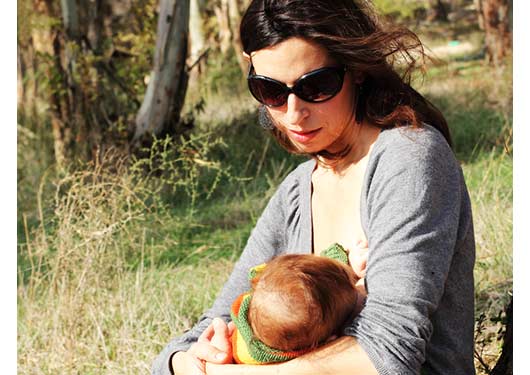
May 2 is Baby Day, where we celebrate the babies of the world! We love babies (our own anyway, most of the time) and try to always treat them with kindness and compassion, even when the crying makes us want to gouge our eyes out… Where were we? Oh, right, babies.
Read Related: Culture Clash: Baby Ear Piercing & Latinos
When you have a son, one of the first things to consider is whether or not you’ll circumcise him. Circumcision began was a Jewish tradition and, during days of yore, served to create fewer nooks and crannies, so to speak, for bacteria to breed and illness to grow. These days, most of us have access to running water and soap making circumcision for cleanliness not so much of a necessity anymore leaving many parents AND doctors wondering why circumcise?
Now circumcision is highly controversial among parents and practitioners. Here’s why:
1. It’s an elective surgery. These days, it’s not necessary to circumcise for the health or hygiene of the child, making circumcision an elective procedure for religious or cultural beliefs or cosmetic preferences.
2. Risk of bleeding and infection. As with any surgery, there is always a risk of blood loss, complications, and infection. Nobody wants their newborn baby to experience any of these things and yet many parents elect for circumcision anyway.
3. Report in medical journal The Lancet says circumcision could reduce the risk of contracting AIDS by up to 60%. In 2007, studies in Africa and New Zealand found a decreased risk of contracting an STD for men who were circumcised.
4. Uncircumcised men have a higher risk of infection under and around foreskin. Because the area is warm and moist, men who are not circumcised get more urinary tract infections and have other medical problems. That said, these issues are usually due more to cleanliness, lifestyle and hygiene habits rather than the presence of foreskin alone.
5. Some believe circumcision reduces sexual sensation/pleasure. Because the tip of the penis is always exposed after the foreskin is removed, many believe it becomes a bit desensitized to stimulation as those nerve endings become accustomed to being touched by clothing, running water, and air.
6. Some consider it male genital mutilation. This is a ‘you say tom-ay-to, I say tom-ah-to’ kind of thing as many parents consider the performance of a medically unnecessary surgery being performed on a child’s genitals to be mutilation, while others see it as a religious, cultural, or cosmetically necessary procedure.
7. Some think the child should be able to make his own decision about his genitals. If we asked them, we’re guessing 100% of baby boys would be against circumcision.
8. It has religious roots. Circumcision was born in Judaism but adopted many many religions and cultural traditions around the world.
9. Medical professionals say it reduces risk of infant urinary tract infections. Again, this has more to do with cleanliness and the parents’ ability to change diapers quickly and clean the penis effectively, but hundreds of studies have shown that uncircumcised males get more infections than their circumcised counterparts.
10. Some say that it’s a painful procedure that traumatizes the infant. Others say the baby doesn’t feel much of anything. Kinda hard to ask and we’re guessing that every baby has different levels of pain, just like adults do.












